Political heavyweight Sue Hickey appointed as UTAS ‘spin doctor’
The University of Tasmania has recruited Sue Hickey as a “spin doctor” to spruik their move to the inner city. WHAT HER ROLE WILL ENTAIL >>
Hobart & South
Don't miss out on the headlines from Hobart & South. Followed categories will be added to My News.
The University of Tasmania has recruited former political heavyweight Sue Hickey as an ambassador to spruik its move to the inner city of Hobart.
UTAS Transformation Executive Director Phil Leersen said Ms Hickey allow them to further engage with the community.
“Sue Hickey’s role will see her meet and listen to individuals, community groups and associations about things that are important to them, the ways the University’s move can improve access to education and their ideas and thoughts for the future of the Sandy Bay campus,” he said.
“She brings considerable experience working with communities to the role and we are pleased to welcome her onboard.”
UTAS did not allow Sue Hickey - a former Hobart Lord Mayor and one-term Liberal state MP – to speak to The Mercury about her appointment.
Save UTAS Campus chairwoman Pam Sharpe said this move smacked of desperation from a university in damage control.
Professor Sharpe said the money spent hiring “spin doctors” should instead be spent on improving the quality of education for Tasmanian students.
“Employing Sue Hickey as an ambassador seems like an extreme move to me. It’s amazing the resources UTAS can put into this,” Professor Sharpe said.
“I wish we were spending this money on student teaching, the courses that they could offer if they weren’t spending it on all this advertising.”
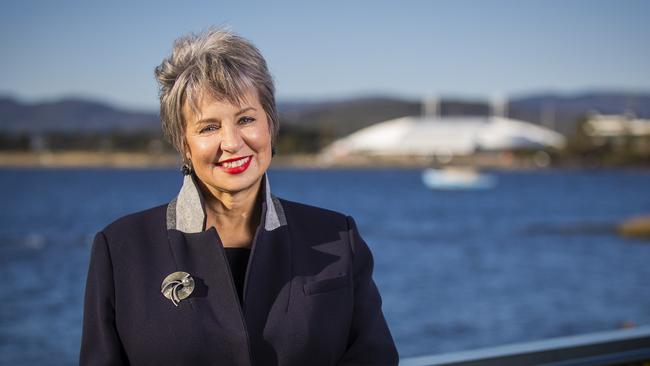
Hobart City Councillor Jeff Briscoe, who is “dear friends” with former city lord mayor Ms Hickey, said he was disappointed by her appointment.
“I do believe she has been misled about the project she’s been asked to advocate for,” Mr Briscoe said.
“She’s certainly a very talented individual, but I’d be asking her whether she’s using her fantastic skill sets for the wrong reasons.”
The Mercury understands that as part of her new role, Ms Hickey will be speaking at events and to community groups to convince people of the benefits of the campus relocation.
UTAS did not reveal how much they were paying Ms Hickey for this role.
Hobart councillor cops racist remarks in UTAS debate
Councillor Mike Dutta has received racist and intimidating remarks from some people against the relocation of the University of Tasmania campus from Sandy Bay into Hobart city.
Mr Dutta said at Tuesday’s Hobart City Council meeting he had received a number of “very strongly worded” and “emotive” emails about the contentious issue.
“I suppose most of us have received them, unless I was singled out,” he said.
Some councillors collectively replied, “no, you weren’t”.
Mr Dutta described the correspondence he had received targeting his racial and cultural background.
“I was in fact in my communication told to go back to Fiji,” he said.
“I was (asked), ‘how long have you been here? Which university did you go to?’
“Now I find this not very pleasant, but that’s OK. In the political arena, I am used to things like this.”
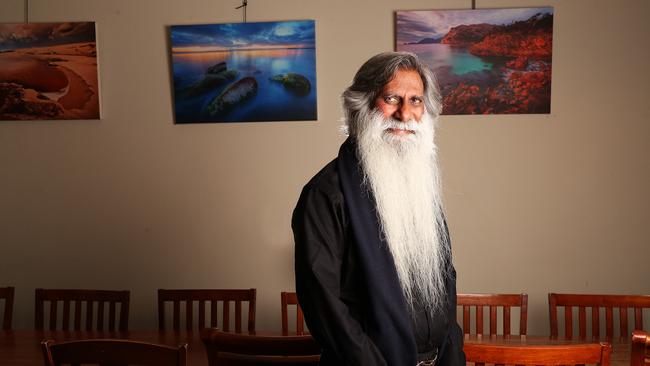
Talking to the Mercury on Wednesday, Mr Dutta said he had received similarly nasty comments during the heat of the North Hobart parking debate.
“When big issues come up, I have phone calls. People don’t want to put it in writing because I will have that as evidence, so they will ring me and make those very aggressive phone calls or conversations and try to intimidate or bully me,” Mr Dutta said.
“Sometimes it’s the unconscious bias people have.
“(When) we are of a different race and different colour, it’s more difficult.”
At the council meeting on Tuesday, deputy lord mayor Helen Burnet reminded people to maintain dignity towards elected members and others while engaging in debate – particularly during Harmony Week.
“I really feel for Councillor Dutta in what sounds quite a racist approach to an elected member, and that should never be,” she said.
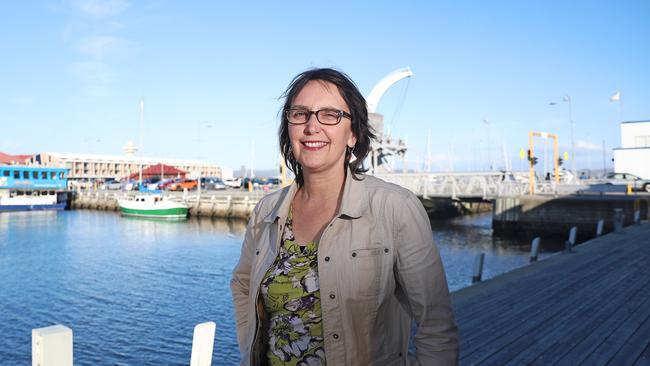
Mr Dutta acknowledged the community’s anger and said it was important for the council to listen to them.
“I am always open to debate but at the end of the day it’s mature, it’s healthy to have a difference of opinion,” he said.
“It’s a democracy and it is important we respect each other’s views and knowledge.”
Mr Dutta told the council even his family was divided on the UTAS campus debate, with some family members against the move for sentimental reasons.
He told the Mercury international students who worked for him would rather study in the city where food and transport was more affordable and accessible.
The councillor hoped to see better communication and greater transparency from UTAS as the issue progressed.
Council moved on Tuesday to address a petition from lobby group Save UTAS Campus as a matter of urgency.
‘What’s the objective?’: Hobart short-stay rate plan slammed
A Hobart property owners group has slammed the Hobart City council’s plan to investigate charging higher rates for entire homes in residential zones being used as short stay accommodation.
At Tuesday night’s meeting the council voted for a report to be prepared on the matter after a motion was moved by deputy mayor Helen Burnet to ease pressure on the housing crisis.
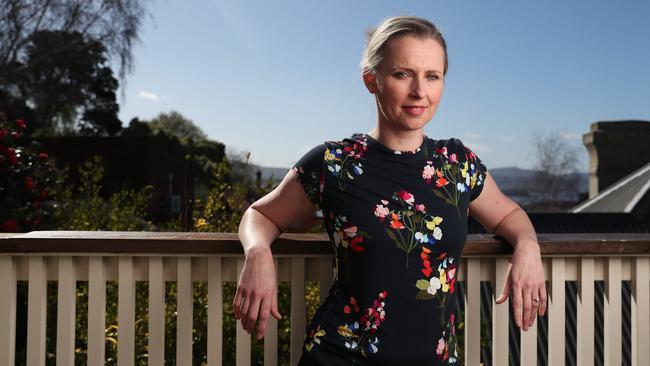
Tasmanian Residential Rental Property Owners Association president Louise Elliot said the point of the move was unclear.
“I want to understand what the objective is,” Ms Elliot said
“Is the objective to shift short stays into the long term market?
“Upping the rates won’t do that.
“This is penalising rather than incentivising.”
Ms Elliot said there was one reasoning she did accept.
“The only rationale that makes sense to me is to be on par with bed and breakfasts and other commercial accommodation providers,” she said.
“That’s the only thing that makes sense to me.”
Ms Elliot said instead of focusing on disincentives, the council should offer incentives instead.
“Why not offer a rates rebates for people who offer their properties to long term housing,” she said.
“Say you’re a landlord and you offer your property about 20 or 30 per cent below the median.
“The council could give a deduction on their rates.
“Or they could look at buying back the short stay permits.”
Airbnb hike on cards as council moves to tackle housing crisis
The Hobart City Council will investigate the potential for higher rates for short-stay accommodation property owners.
Owners of such properties, including those who list whole houses on Airbnb, and vacant residential land owners, could soon be paying more rates than residential house owners.
The motion was moved by Deputy Lord Mayor Helen Burnet on Tuesday night in an effort to ease pressure on the housing crisis in Hobart.
Ms Burnet said the council had under-utilised its differential rates system.
Properties listed as whole-house visitor accommodation have their rates calculated as a residential property and vacant land is zoned as residential.
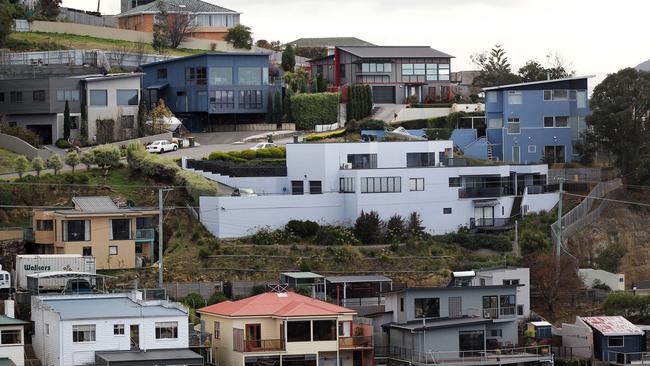
Hobart has more than 480 short-stay accommodation properties that are entire homes. The council passed the motion to launch the report, which would calculate the appropriate rates for each category. Properties such as shacks or home businesses would be excluded from the differential rate.
The council also unanimously carried an item on the motion that would see advice included in the report on possible state government incentives for new residential properties to be used for housing the applicant, or housing long-term tenants.
Tourism Industry Council Tasmania CEO Luke Martin said the fact big hotels were listing on Airbnb reiterated why Airbnb accommodation providers and other booking businesses should be treated similarly.
“Hobart City Council can and should be applying commercial rates to all permitted accommodation businesses within their municipality,” he said.
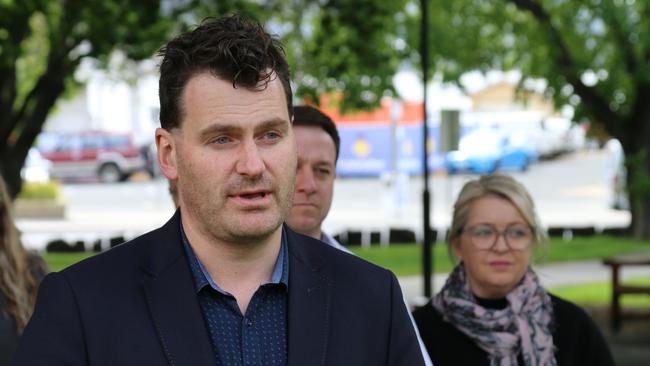
“The challenge for all councils is to ensure there is an even playing field when it comes to regulating accommodation businesses and making the cost of doing business fair and equitable for all.”
Independent Member for Clark Andrew Wilkie supported Ms Burnet’s motion.
“There is no doubt that one of the main reasons we have a housing crisis in Tasmania is because of the very large number of houses that have been converted to short-stay properties,” Mr Wilkie said.
“If we are going to allow that, then the owners of those properties should pay a bit extra in rates. That would help in some small way to arrest the growth in short-stay accommodation.”
Airbnb Australia and New Zealand country manager Susan Wheeldon said short-term rental accommodation comprised less than one per cent of Hobart housing.
“The rising cost of living is placing increased strain on households across the state and differential rates will place further financial pressure on everyday hosts who share their homes to help make ends meet,” she said.
Waterfront walkway vision revived
A project to create a water’s edge walkway from Sandy Bay to Hobart that was once approved by council but dismissed by a tribunal is back on the table.
Talks of a Battery Point foreshore walkway have ebbed and flowed over recent decades, but Hobart City Council passed a motion on Tuesday that would revisit the river walkway.
Councillor Mike Dutta’s motion for council was to seek advice from the CEO on a summary of the council’s most recent decisions and its associated costs, as well as advice on how much a new design would cost to create.
The motion will also see the CEO advise on whether the design could be budgeted into the 2022/23 estimates and whether funds could be raised via avenues like the Sandy Bay redevelopment project.
Council probes uni move
Hobart City Council will launch a report into the impact of the UTAS campus migration on city traffic and businesses, as talk of an inquiry was shot down.
The council voted against Alderman Jeff Briscoe’s call to write to the Upper House asking for an inquiry into the University of Tasmania’s move from Sandy Bay into the Hobart CBD.
The motion was debated at length on Tuesday night, with amendments brought by Alderman Marti Zucco.
The council carried a key part of the motion, which will see a report into consultation surrounding the campus move.
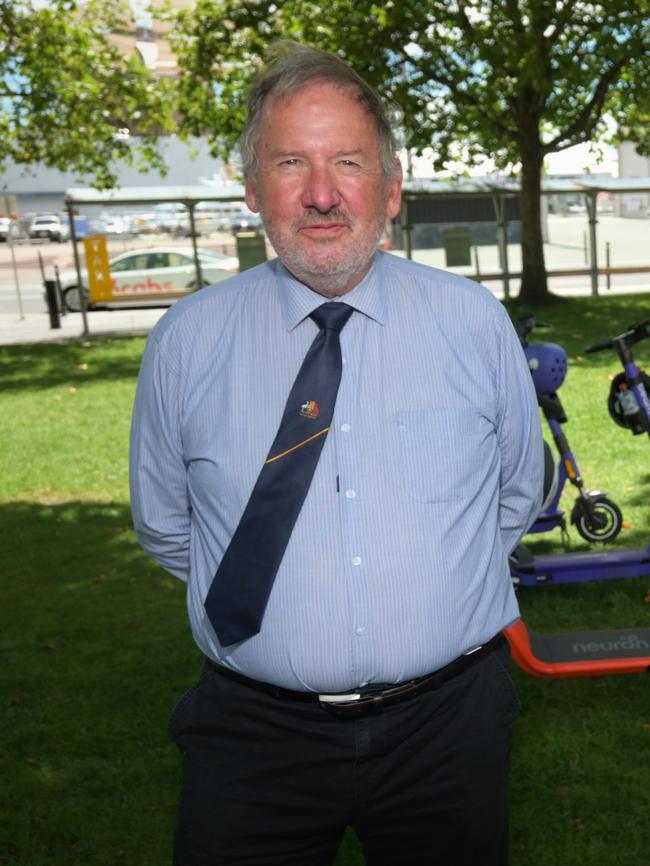
The report will also examine what impact the move would have on Sandy Bay and inner-city suburbs, on businesses in the CBD and on traffic flow and parking in Sandy Bay and Hobart.
The council voted in favour of writing to UTAS to urge it to undertake a community engagement process in keeping with the council framework.
The councillors passed another item on Mr Briscoe’s motion that would see a recent petition from lobby group Save UTAS Campus “dealt with as a matter of urgency”.
The petition drew more than 1000 signatures from people calling for the HCC to hold a public meeting.
It comes amid backlash against the campus relocation, which has involved UTAS purchasing 2.7 per cent of the buildings in a Hobart innercity academic precinct.
Mr Briscoe claimed that there was a lack of evidence to suggest moving into the city would have any educational or research benefits.
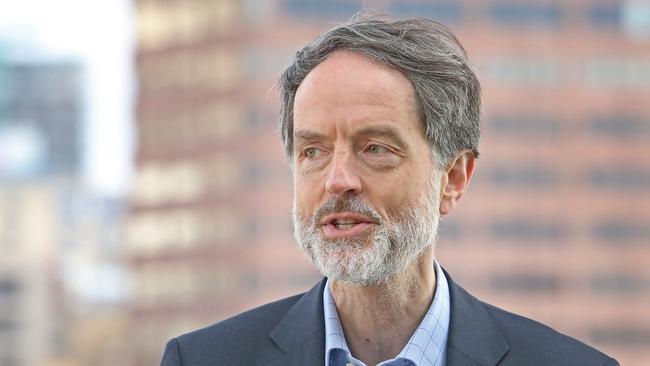
“(The university’s) various attempts at communicating their plans and reasons to the public have not been successful to date, in my view, in convincing the public, as evidenced by the mountains of letters to the editor and other articles where the public are demanding scrutiny,” he said.
Councillor Mike Dutta said many people had claimed UTAS was not consulting effectively with the community, but he argued the university had actively engaged with stakeholders and Sandy Bay residents from 2019 onwards.
Councillor Will Coats said the staggering level of community interest in the issue warranted a careful and thorough approach from council.
UTAS Vice-Chancellor Rufus Black said the CBD move would improve access to higher education.
“To improve education rates, we have to tackle every barrier to education Tasmanians face, which is why the move into the city is so important.,” Professor Black said.
“We appreciate the Hobart City Council debate tonight and reaffirm our ongoing commitment to genuinely engaging and consulting about the future of the Sandy Bay campus.”




